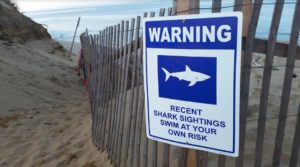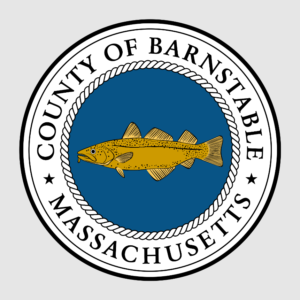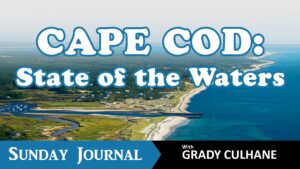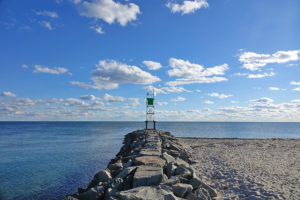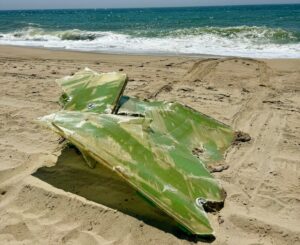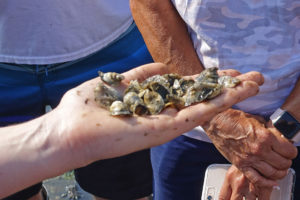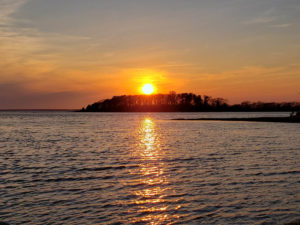HYANNIS – Several officials from Cape Cod were in Boston last week to discuss a plan for addressing the shark issue and how it will be funded.
Dozens of people attended the meeting including town leaders, public safety officials, tourism leaders, federal, state and private scientists, the National Seashore superintendent, the Cape legislative delegation and Baker-Polito Administration staff and department heads.
The meeting also included staff from the offices of U.S. Congressman William Keating, and U.S. Senators Edward Markey and Elizabeth Warren.
The meeting was convened by Lt. Gov. Karyn Polito to present the state’s interest in willingness to help find solutions to managing the interactions between sharks and humans in Cape Cod waters.
The meeting follows a summer highlighted by two shark attacks on the Outer Cape, including one fatality.
A Revere man, Arthur Medici, was killed in September after he was bitten by a shark off Newcomb Hollow Beach.
Another man from New York was bitten in Truro in August and survived.
“I felt really good about the meeting,” said Wendy Northcross, the Cape Cod Chamber of Commerce CEO. “I thought the right people were in the room. There was a broad cross-section of people who were in the room and it was a very businesslike meeting that got a lot accomplished.”
Northcross says the meeting included a lot of information sharing and a discussion on how certain shark/human interaction mitigation efforts will be funded, including at the local, regional, state and federal level.
“There has been ongoing work, but now there is some impetus to try to fund that work,” she said. “So there was discussion about who could put resources behind which tactic.”
It is unclear whether shark attack prevention efforts would need to be paid for through towns’ free cash accounts or needs town meeting approval, the state supplemental budget or the FY 2020 state budget.
“There is a whole array of places we can look to for additional resources, but we also need some additional information in some cases before we look for funding,” Northcross said.
“We have to really know what is going to be the highest and best use of that money that is going to keep people safe and maintain confidence in the destinations.”
The town leaders on the Outer Cape and National Seashore Superintendent Brian Carlstrom presented a letter for Gov. Charlie Baker detailing where state assistance would be needed.
Northcross expects the implementation of increased communications and more resources and tools for lifeguards for the start of the 2019 tourist season.
“There will definitely be a ramped up communications campaign, probably before people arrive on the Cape and certainly while they are here,” Northcross said.
“We are not going to scare people away, but when they get to the beach they are going to have good, solid information that they truly understand what’s in the water and water certain risks will be.”
Northcross said discussions will continue and there will be a commitment to getting important information out to the public through the media.
“We are not going to hide anything, but there will be a little bit more transparency moving forward,” she said.
In 2016, the state received more than $47 million in tax revenue from the tourism industry on Cape Cod. That figure is expected to drastically increase with the last summer’s passage of the short-term rental tax bill.




